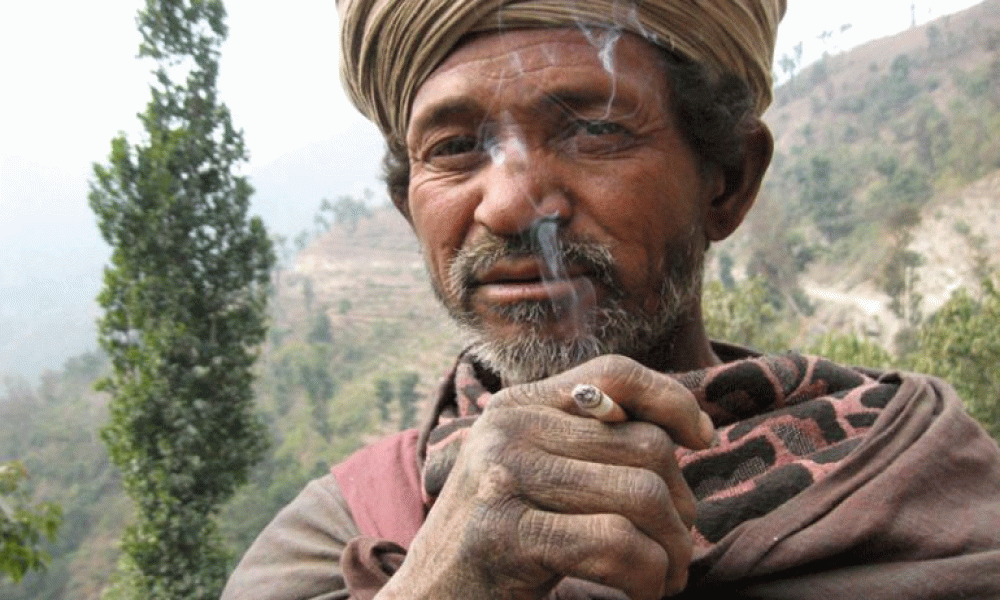Devika Gharti Magar
Rautes are the last nomads of Nepal. They have always travelled across the forests of the mid-western and far-western regions, hunting wild animals and making wooden pots for livelihood. But they have now started to rethink their lifestyle. As they get closer to the outside world, they are aspiring for safer and more stable life.
When asked why they would not want to settle down in some village, Rautes, until a few years ago, would say they loved to live in forest. They still consider themselves as the kings of the forest, and they say forest is where they find solace and confort. But not any more. They are now moving towards nearby towns in pursuit of more comfortable life.
Of late, Rautes have also been demanding that the constitution guarantee their rights to habitat.
In 2009, when Maoist Chair Pushpa Kamal Dahal was Prime Minister, a delegation of Rautes had come to Kathmandu. Dahal promised to give them land to settle down. But they refused, saying they were happy in the jungle. But they demanded monthly allowances, which Dahal agreed to. Since then, Rautes have been getting allowances from the government regularly.
Most forests have been handed over to local community groups, and Rautes have been deprived of their traditional rights over forest products. Most forest users groups have prevented them from entering their jungle areas and felling trees.
"Rautes want to renounce their nomadic lifestyle," says Satya Devi Adhikari, President of Multipurpose Education and Health Service, a local NGO supporting Rautes for their livelihood and empowerment.
Woodcraft is Rautes' main occupation. They make various kinds of pots from wood. But they find it difficult these days to get wood to make wooden vessels. Most forests have been handed over to local community groups, and Rautes have been deprived of their traditional rights over forest products. Most forest users groups have prevented them from entering their jungle areas and felling trees.
But Sobhakar Sapkota, President of Federatoin of Community Forest Users Nepal, Dang, says forest users must stop thinking that Rautes are destroyers of forest. "They are very few to cause deforestation," he says. "And they chop down mostly those trees, which are of little value."
Sapkota says instead of keeping Rautes away from the jungle forest user groups should try to engage them in preservation of the jungle. "Rautes are our cultural heritage, and we must respect and preserve their woodcrafts," he says. "We should help promote their art."
The total population of Rautes stands at just a little more than 600. They are mostly found in the mid-western and far-western regions.









